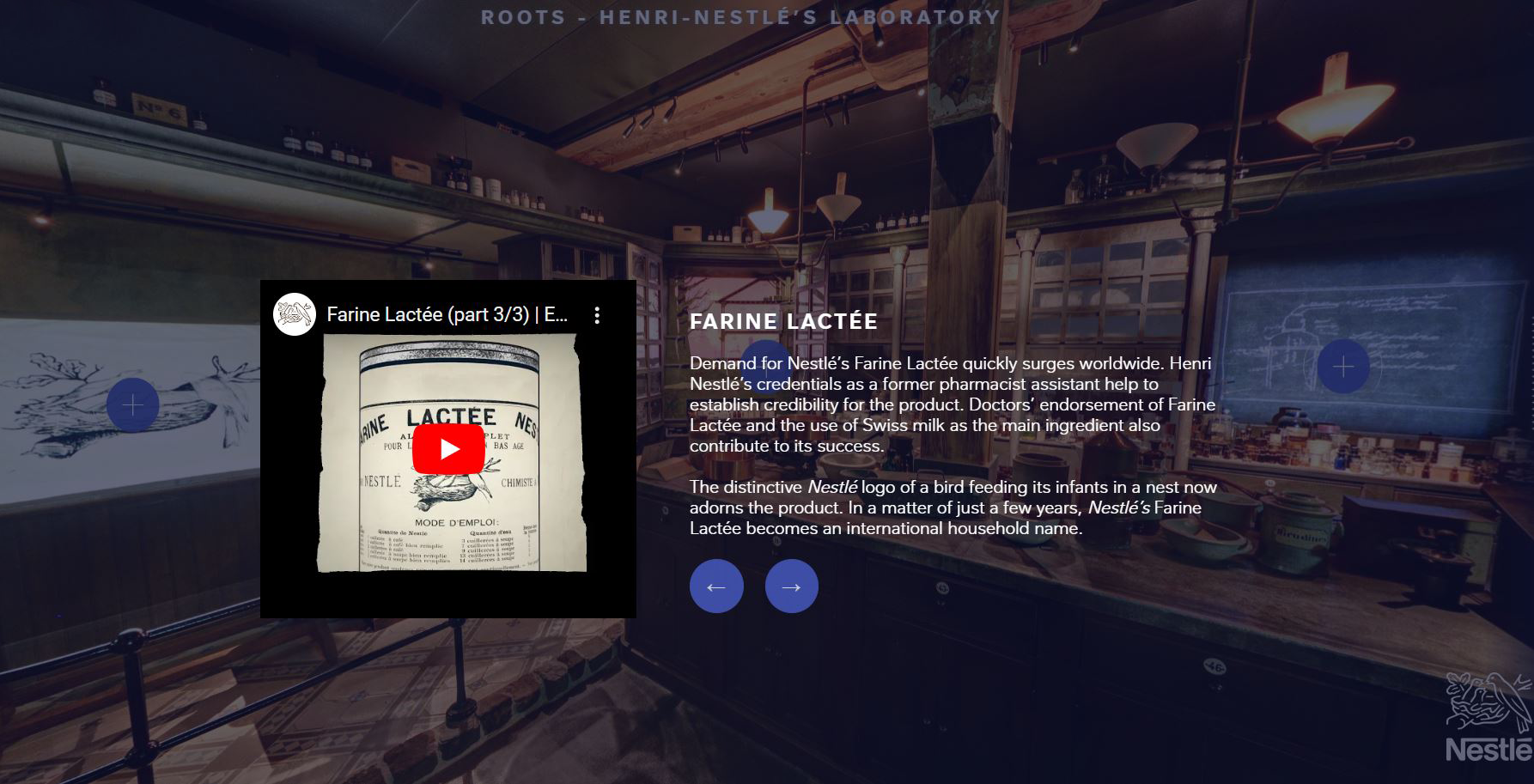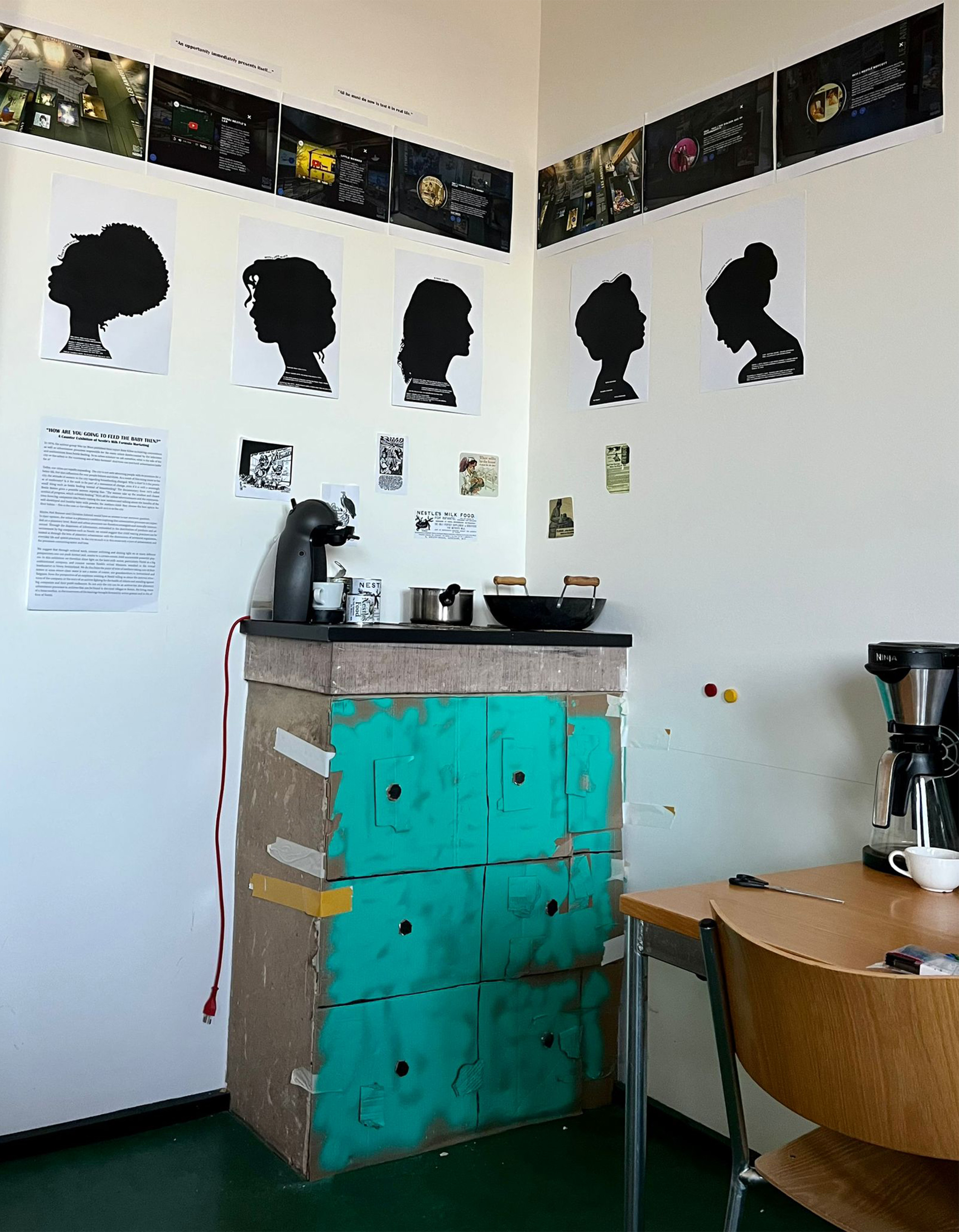“How are you going to feed the babies
then?”
Authors: Charlotte Van Rhijn | Fay McKee | Lea Helfenstein | Nadja Nievergelt
In 1974, the activist group War on
Want published their report Baby Killer to hold big corporations as well as
urbanization processes responsible for the many infant deaths caused by
infections and malnutrition from bottle feeding. As urban scholars we ask
ourselves, what is the role of the city or ‘the urban’ in the increasing use of
milk formula to feed babies?
Our project shines light on the baby
milk sector, particularly Nestlé as a big multinational company, and provides a counter-narrative to Nestlé’s virtual museum, installed in the virtual headquarter in Vevey,
Switzerland (Nestlé 2024: Nest Virtual Tour). We do this by analyzing the accounts of mothers taking care of their babies in areas where
clean water is not a matter of course (De Alba 2020; Pachego Vega 2019), the memories of our
grandmothers in Switzerland and Belgium, the perspective of a Nestlé employee on the internal structures of the company, and the experiences of an activist fighting for the health of infants and standing
against big companies and their profit endeavours (Baby Milk Action UK 2015;
Johnson and Duckett 2020). Not only the city can be an archive, but also
planetary urbanization processes can be looked at as archives and help to
uncover different stories. They can be found, for example, in rural villages in
Kenya, the living room of a Swiss mother, in the courtroom of the hearings
brought forward by action groups and in the offices of Nestlé.
To be able to read Nestlé’s archive “against the grain”, we agree with Stoler’s argument that it is crucial to first “read along the archival grain” (ibid.: 100). Therefore, at the beginning of our project, we attentively investigated Nestlé’s own perspective on their history through their virtual museum. The Nestlé virtual museum talks a lot about women, but doesn't let any women's voices do the talking. Secondly, during the visit, one gets a sense of manipulation because of the stereotypical images of women in domestic roles, but also, and somewhat paradoxically, of feminist discourse, all to promote Nestlé and its products.






Myrtha (Swit zerland)
Bernadette (Switzerland)
Mia (Belgium)
Verena (Switzerland)

- WHO (2022). WHO reveals shocking extent of exploitative fomula milk marketing
- Douglas A. Johnsonm, Lara J. Duckett (2020). Advocacy, Strategy and Tactics used to confront corporate power. The nestle boycott and international code of marketing of breast milk susbstitutes. Journal of Human Lactation, Vol 36(4) 568 - 578
- Podcast: Swindeled (2019). The Formula (Nestle Boycott of 1977)


- Cousin information (Water System- Access)
-
Podcast: Swindeled (2019). The Formula (Nestle Boycott of 1977).
-
F de Alba (2020). Handbook of Megacities and Megacities Region. Chapter: Flooding as emotional politics in the Mexican Megacity-region .
- Raul Pachego -Vega (2019). (Re)theorizing the politics of Bottled Water; Water Insecurity in the Context of Weak Regulatory Regimes.




- Nestlé - Good food, Good life -, Diversity and Inclusion, https://www.nestle.ch/fr/jobs/diversity-inclusion
- Wilhelm, L. (2021). Business et santé infantile mondiale. La stratégie médicale de Nestlé au sein des réseaux pédiatriques et humanitaires transnationaux. Monde(s), 20, 49-66.
- Humanrights.ch, Motarjemi vs. Nestlé, "Motarjemi contre Nestlé: un combat pour la santé publique, les droits humains et la liberté d'expression",march 13, 2023, https://www.humanrights.ch/fr/litiges-strategiques/cas-traites/motarjemi-nestle




- Jessica Davis Plüss (2022): WHO slams baby milk industry for rampant ‚ manipulative‘ marketing:https://www.swissinfo.ch/eng/business/who-slams-baby-milk-industry-for-rampant--manipulative--marketing/47369706
- World Health Organization (2022): Scope and impact of digital marketing strategies for promoting breast milk substitutes.
- Baby Milk Action UK: https://www.babymilkaction.org/archives/5084
- Douglas A. Johnsonm, Lara J. Duckett (2020). Advocacy, Strategy and Tactics used to confront corporate power. The nestle boycott and international code of marketing of breast milk substitutes. Journal of Human Lactation, Vol 36(4) 568 - 578
COUNTER - INSTALLATION
Our exhibition took the form of a cardboard kitchen decorated with empty tins on which we put Nestlé product labels. Around the cardboard kitchen, we exposed the silhouettes of five women. We gave them a story and a voice. Nestlé's advertising campaigns often tend to assign women to the domestic space and to the kitchen in particular, but without giving them a voice. In our exhibition, fictional women tell five fictional stories, a combination of personal accounts and research into scientific literature. The final stage of our installation was to lend our voices to these five fictional women, so that they could tell their hitherto silenced stories to interested listeners.


